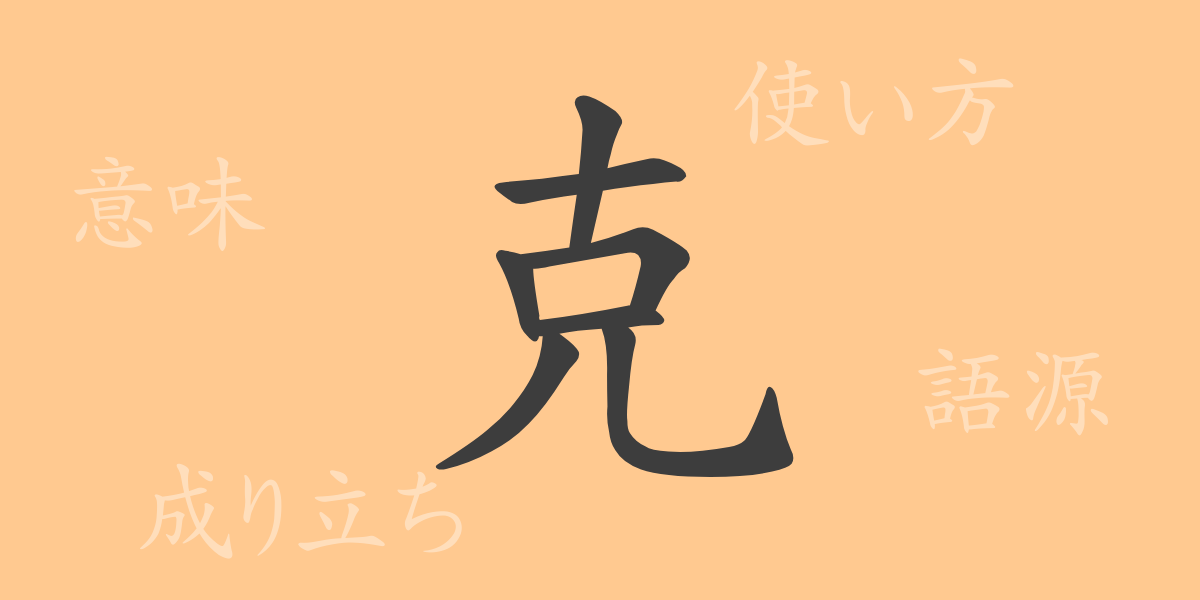The richness of the Japanese language is supported by a diverse array of kanji characters, each with its unique history and meaning. One such character is the commonly used kanji “克(かつ),” which frequently appears in daily life and business contexts. This article delves into the origins, meanings, uses, and idiomatic expressions of “克(かつ),” offering a comprehensive exploration of this essential kanji.
Origins of 克(かつ)
The kanji “克(かつ)” evolved from an ancient Chinese pictograph representing the act of carving. Originally depicting the action of carving into stone, the character eventually came to symbolize overcoming challenges and achieving victory. This transformation reflects the difficulty of carving stone and, by extension, the strength required to overcome obstacles.
Meanings and Uses of 克(かつ)
“克(かつ)” carries meanings such as “to overcome,” “to win,” and “to conquer.” It is also used to indicate possessing the ability or skill to accomplish something. The character often appears in contexts where human strength or perseverance is highlighted, such as overcoming a challenge or achieving a significant goal.
Readings, Stroke Count, and Radical of 克(かつ)
Let’s take a closer look at the readings, stroke count, and radical of “克(かつ).”
- Readings: The on’yomi (音読み) is “コク,” and the kun’yomi (訓読み) is “か.つ.”
- Stroke count: “克(かつ)” consists of a total of 6 strokes.
- Radical: The radical for this kanji is “儿(にんべん).”
Idioms, Phrases, and Proverbs Using 克(かつ)
Numerous idioms, phrases, and proverbs incorporate the kanji “克(かつ),” each imbued with significant meaning. Here are a few examples:
- 克己心(こっきしん): The strength of will to control one’s desires or emotions.
- 自己克服(じここくふく): The act of overcoming one’s weaknesses or shortcomings.
- 時を克服(ときをこくふく): Overcoming difficult times or challenging eras.
- 困難を克服(こんなんをこくふく): Surmounting obstacles or difficulties.
Conclusion on 克(かつ)
The kanji “克(かつ)” symbolizes positive concepts such as overcoming challenges and achieving victory, embodying the strength and perseverance of individuals. Widely used in Japanese, this character enriches the language through its presence in idioms and expressions, adding depth and strength to our words. Remembering the significance of “克(かつ)” in daily life can inspire us to embrace self-improvement and courage in the face of adversity.

























